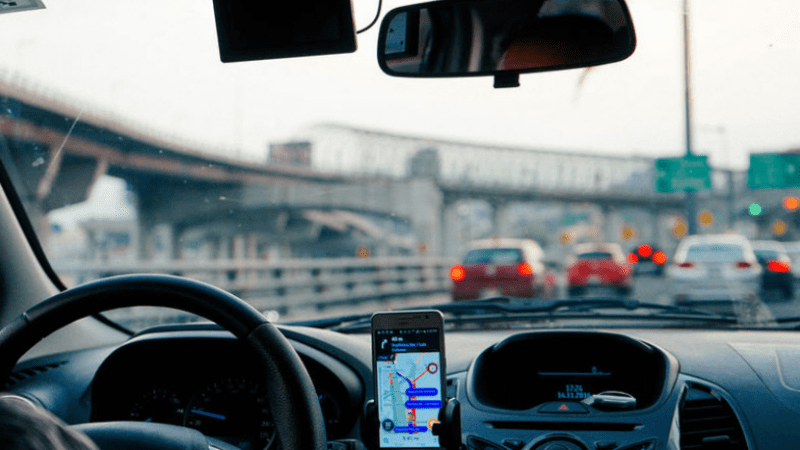The Active Transportation Alliance has launched a petition where you can voice your support for fair ride-hail fees and better CTA service to elected officials. Add your name to the petition here.
When discussing the pros and cons of Mayor Lori Lightfoot's proposal to raise fees on private and downtown ride-hail trips, while lowering the tax on shared trips in the neighborhoods, it's important to take an intersectional approach and consider the potential impacts on marginalized populations. We need to think about how the legislation would affect lower-income residents, communities of color, people with disabilities, women, and other groups that might have special concerns. In the near future, we'll be running a piece featuring diverse perspectives on the proposed ordinance from community leaders and mobility justice advocates.
That said, we should also recognize the latest round of attacks on the proposal as "regressive" by Uber, Lyft, and their proxies for what it is. It's misleading propaganda intended to kill a proposal that would actually help make Chicago's transportation system more equitable, put out by companies who are less concerned about transportation equity than their bottom lines.
As I discussed yesterday, Uber is taking nearly the exact same approach to fight the proposed ride-hail tax ordinance that it did last spring when it tried to block the Divvy/Lyft deal for citywide bike-share expansion. Once again, the company is buying ad space and enlisting community leaders and clergy members to promote its misleading arguments that the initiative would hurt Black and Brown residents. The main difference is that this time Uber is on the same side of the issue with Lyft, which is also putting out deceptive statements.
Yesterday at a hearing on Lightfoot's proposal, Department of Business Affairs and Consumer Protection commissioner Rosa Escareno called the ride-hailing companies' tactic exactly what it is, "a misinformation campaign."
A good example of the effectiveness Uber's astroturfing strategy is an op-ed by the Sun-Times' Laura Washington from earlier this week titled "Higher taxes would hurt those who really need ride-hailing." It basically reads like a press release promoting the company's talking points.
In fairness Washington, who's African American, makes some very valid points about the advantages of ride-hail for Black and Latino communities. "Ride-hailing has been manna from heaven for Chicagoans starved for decent transportation options," she states. She notes that, unlike downtown and on the North Side, traditional taxis don't typically cruise around the South and West sides looking for fares, and people of color have often faced discrimination while trying to flag a cab. Her article also mentions that reliable on-demand pickup has been a game-changer for single mothers who need to run errands with children, and in some violence-prone neighborhoods residents may feel unsafe waiting for the bus.
But the op-ed largely ignores the downsides of ride-hail, especially for lower-income Chicagoans and communities of color. Uber and Lyft are artificially cheap due to the companies' willingness to burn through venture capital while booking huge losses, which isn't a sustainable business model. The low cost and convenience of ride-hail mostly results in walking, biking, and transit trips being converted to car trips, which makes congestion worse and slows down buses, which lower-income residents and people of color are more likely to be reliant upon.
Many people who can afford to use Uber and Lyft are opting out of riding the CTA. Since 2015, shortly after ride-hail launched in Chicago, there have been 48 million fewer CTA rides taken annually. That means less farebox revenue, which will eventually force the agency to cut service, leaving residents who can't afford ride-hail stranded with increasingly worse bus and train access.

Washington's piece is mostly based on a conversation with Reverend Walter Turner of the New Spiritual Light Missionary Baptist Church in South Shore. He's essentially an Uber spokesman, although it's not clear whether he is being financially compensated for the work or not. Turner appeared at an Uber-organized protest against Lightfoot's proposal yesterday at City Hall. The other two participants in the protest, community organizer Tim Jones and Reverend William Hall of Saint James Church in Chatham, were involved in Uber's campaign against the Divvy deal last spring.
“[Ride-hailing], since its inception, Laura, has been a true blessing in our communities,” Turner told Washington.
Washington writes that Turner and other pastors "agree the congestion tax would hurt folks who rely on ride-hailing for basic transportation needs... in the second quarter of 2019, nearly half of all rides originated or ended on the South and West sides. And in the past two years, the fastest growing community areas for Uber pickups have been in those areas."
While there's no argument that Uber and Lyft are popular on the South and West sides, Washington fails to acknowledge the type of trips most people are taking in these parts of town. While less than 30 percent of ride-hail trips hailed downtown and on the North Side are shared, over 50 percent of trips hailed on the South and West side are Uber Pool or Lyft Line, according to a recent city of Chicago study.
Lightfoot's proposal would lower the city fee on non-downtown shared rides by seven cents. So as it stands, more than half of South and West side Uber and Lyft users would save a little money under the new structure.
And since the tax on shared trips would become 60 cents lower than that on private trips under the new system, it's likely the number of people choosing Uber Pool and Lyft Line over private trips would skyrocket. That means that that the vast majority of South and West side trips would likely become a little cheaper than they are now. That would benefit, not hurt, people who rely on ride-hailing for basic transportation.
So again, it's crucial for city officials and sustainable transportation advocates to listen to the concerns of people from marginalized communities to make sure there aren't any unintended consequences of Lightfoot's plan that are being overlooked. But when social justice arguments against raising the ride-hail tax is coming from someone whose financial relationship to Uber or Lyft is unclear, take them with a grain of salt.
Click here to add you name to Active Trans' petition in support of the fair ride-hail tax plan.






